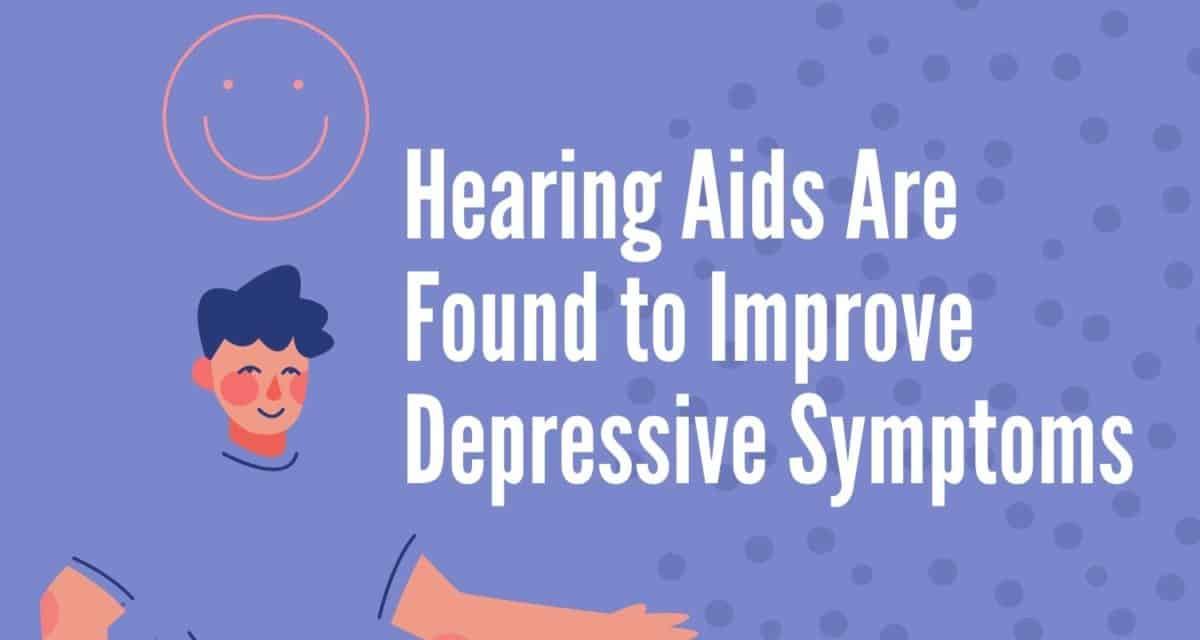While hearing loss was once thought to be an annoying but relatively benign aspect of aging, multiple studies in recent decades have found that hearing loss is implicated in a host of negative outcomes for health and well-being. Hearing loss has been found to significantly increase the likelihood of cognitive decline and dementia, depression, paranoia, social isolation, accidental injury, and more. While the situation may look dire, a good set of hearing aids can all but eliminate these unfortunate effects.
How Does Hearing Loss Lead to Depression?
While it may seem intuitive that losing our hearing might lead to depression, the effects of hearing loss on our mood and well-being can creep in so slowly that we don’t even notice. We may not realize that hearing loss is really the root cause of our decreased life satisfaction.
Human beings are social animals. We thrive on communicating with others, and our brains light up in the presence of another human being as we empathize with them, interpret their language and body language, and share parts of our own stories, thoughts and opinions. The time we spend with other people is deeply important to not only our emotional well-being and mental health, but our cognitive fitness, as well.
When we can’t hear, our social activities become less enjoyable. It’s all too common for a person with untreated hearing loss to start avoiding the social time they once held dear. This contributes to loneliness, and eventually depression.
Hearing loss can rob us of not only our ability to communicate with friends and loved ones, but can make us feel less comfortable navigating the world in general. Those with untreated hearing loss tend to get less exercise and leave the house less often than those with normal hearing—and the degree to which they are more sedentary is in direct relationship with the severity of their hearing loss. Decreased physical activity, by itself, can contribute to depression, so in conjunction with the loss of other enjoyments, you can see how hearing loss can create a kind of feedback loop of negative outcomes.
How Can Hearing Aids Help?
A prospective study published in the journal JAMA Otolaryngology – Head & Neck Surgery in 2016 found that cochlear implants and hearing aids alleviated symptoms of depression in geriatric adults over a 12-month period.
These results were to be expected. While further studies are needed to obtain evidence that hearing aids alleviate depressive symptoms for the long term, it is likely that they will do so.
Depression that results from hearing loss seems not to be related simply to the fact of a person’s hearing loss, but to the consequences of hearing loss. Untreated hearing loss makes it difficult to enjoy the activities that we, as human beings, appreciate nearly universally. Communicating with loved ones can become more difficult and cause frustration. Social gatherings may be challenging as the conversation becomes harder to follow. The consequences of hearing loss can have a detrimental impact on one’s lifestyle and quality of life.
While the most common types of hearing loss cannot be “cured,” treating the symptom (i.e., not being able to hear) with hearing aids makes it possible to communicate effectively, feel safe navigating the world, and otherwise enjoy a lifestyle very similar to the lifestyle we enjoyed before hearing loss became an issue. By helping us to feel capable, independent and confident, hearing aids ultimately help us to lead happier lives!
Early Adoption is Best
The longer we live with untreated hearing loss, the harder it is to adjust to wearing hearing aids and to regain the aspects of our lives that we may have lost over time. It’s understandable that we may wish to put off wearing hearing aids until our hearing is “really bad,” but unfortunately there are consequences of doing this. Even those with mild hearing loss report earlier social fatigue, more difficulty carrying on conversations, more memory troubles, and, yes, less physical activity, as well. They are also at an increased risk of accidental injury, and twice as likely to experience an earlier onset of cognitive decline and dementia.
The best course of action if we think we might have hearing loss is to get a hearing test, and find out objectively whether hearing aids are recommended for us. Hearing aids are only recommended for those who need them, so if your hearing healthcare practitioner suggests that you start wearing hearing aids, you should do so right away! It will be much easier and more beneficial than waiting until your hearing loss becomes more severe.


